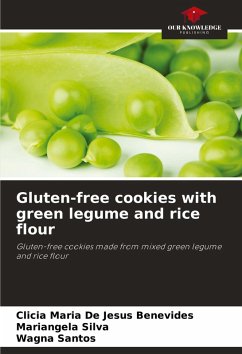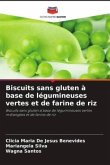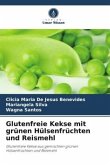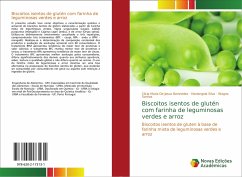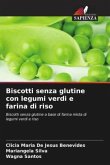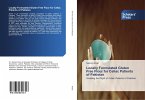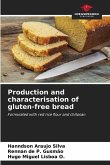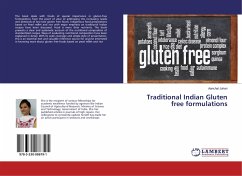The objectives of this study were the chemical and sensory characterization of gluten-free cookies made from mixed green legume flour, Vigna unguiculata (caupi), Lablab purpureus (mangalô) and Cajanus cajan (andu), and rice (Oryza sativa). A completely randomized design with three replications was used, comprising three treatments (BFC - caupi; BFA - andu and BFM - mangalô). The centesimal composition of the products was determined and sensory acceptance was evaluated with 60 consumers. The BFM treatment tended to have a higher protein and calorie content; the BFC treatment showed a lower protein and ash content; the BFA treatment tended to have a higher ash content. The BFC treatment showed better consumer acceptance, differed significantly from the others in terms of appearance, taste, texture and overall quality, and did not differ in terms of aroma. The use of mixed legume and rice flour proved to be a good alternative in the preparation of gluten-free cookies, which could beconsumed by consumers in general or those with restricted gluten intake.
Bitte wählen Sie Ihr Anliegen aus.
Rechnungen
Retourenschein anfordern
Bestellstatus
Storno

